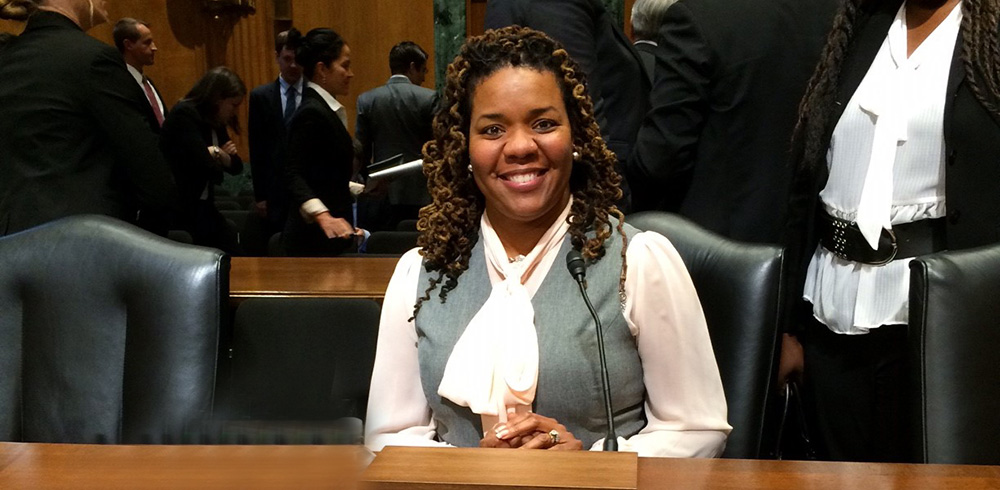
The U.S. Senate Finance Committee held a hearing for the first time to explore how evidence-based programs like Nurse-Family Partnership change outcomes.
Tesha Bright, a nurse serving the Nurse-Family Partnership (NFP) program in Essex and Morris Counties in New Jersey testified in Congress in May about how her team changes lives for the highest risk clients.
“National replication of our program is dramatically improving lives of vulnerable families and yielding significant returns to society by fostering more stable and productive families,” Bright said.
But so far, only about three percent of approximately 800,000 young women who would qualify for NFP
across the U.S. are getting help.
Bright shared research showing that for every 100,000 families NFP serves:
- 14,000 fewer children will be hospitalized for injuries in their first two years of life
- 300 fewer infants will die in their first year of life
- 11,000 fewer children will develop language delays by age two
- 23,000 fewer children will suffer child abuse and neglect in their first 15 years of life
- 22,000 fewer children will be arrested and enter the criminal justice system through their first 15 years of life
She told of supporting clients who are least prepared to be mothers: homeless teens fighting drug addiction or those who were abandoned and abused as children
“I think of one of my 15-year-old clients, who, at the time, was living in a homeless shelter.”
Initially, shelter staffers blocked Bright from serving the teen because they believed she’d lose her baby anyway. But Bright persisted and the young mom fought to change her life and became excited about
motherhood. “I received a 3 a.m. call when she went into labor…and discovered she was being treated without compassion. This experience had the potential to be quite traumatic for this teen, but by advocating for her and pulling staff aside, I ensured that she was treated fairly.”
Bright helped the mom get started with breastfeeding and although the mother and baby were separated for a time after the birth, the teen pumped her milk and eventually reunited with her baby girl at a group home.
During the hearing, Sen. Tim Scott, R-South Carolina, raved about how his state has become the first in the nation to launch an NFP Pay for Success program.
“Nurse-Family Partnership has a lot of data and evidence on their ability to produce successful outcomes for women and children living in poverty. Because of this, Gov. Haley could feel confident about expanding NFP in South Carolina,” Scott said.
Sen. Bob Menendez, D-New Jersey, highlighted the powerful results NFP nurses achieve. “I want to commend you and the work that the Nurse-Family Partnership is able to accomplish on behalf of the families you serve, and when you talk about evidence-based successes, this is one Mr. Chairman. And it’s because of the need facing these communities and communities like them around the country that I have been such a supporter of home visiting programs,” Menendez said.
Bright’s testimony was critical. It showed the vital leadership role that NFP plays when it comes to evidence-based social programs. Second, support for NFP is key now as advocates push for the reauthorization of the federal Maternal, Infant and Early Childhood Home Visiting (MIECHV) bill along with Medicaid expansion and more funding for Pay for Success projects.

